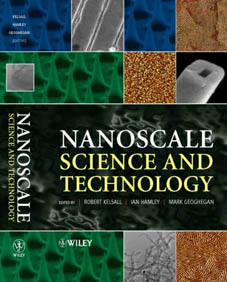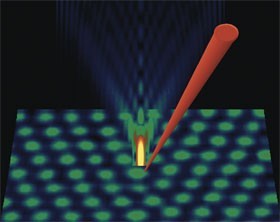This small but distinguished organisation has gained another two members. The theoretical condensed matter physicist Robert Laughlin, in his new book A Different Universe: reinventing physics from the bottom down, has a rather scathing assessment of nanotechnology, with which Philip Anderson (who is himself a Nobel Laureate and a giant of theoretical physics), reviewing the book in Nature(subscription required), concurs. Unlike Richard Smalley, Laughlin’s criticism is directed at the academic version of nanotechnology, rather than the Drexlerian version, but adherents of the latter shouldn’t feel too smug because Laughlin’s criticism applies with even more force to their vision. He blames the seductive power of reductionist belief for the delusion: “The idea that nanoscale objects ought to be controllable is so compelling it blinds a person to the overwhelming evidence that they cannot be”.
Nanotechnologists aren’t the only people singled out for Laughlin’s scorn. Other targets include quantum computing, string theory (“the tragic consequence of an obsolete belief system”) and most of modern biology (“an endless and unimaginably expensive quagmire of bad experiments”). But underneath all the iconoclasm and attitude (and personally I blame Richard Feynman for making all American theoretical physicists want to come across like rock stars), is a very serious message.
Laughlin’s argument is that reductionism should be superseded as the ruling ideology of science by the idea of emergence. To quote Anderson “The central theme of the book is the triumph of emergence over reductionism: that large objects such as ourselves are the product of principles of organization and of collective behaviour that cannot in any meaningful sense be reduced to the behaviour of our elementary constituents.” The origin of this idea is Anderson himself, in a widely quoted article from 1971 – More is different. In this view, the idea that physics can find a “Theory of Everything” is fundamentally wrong-headed. Chemistry isn’t simply the application of quantum mechanics, and biology is not simply reducible to chemistry; the organisation principles that underlie, say, the laws of genetics, are just as important as the properties of the things being organised.
Anderson’s views on emergence aren’t as widely known as they should be, in a world dominated by popular science books on string theory and “the search for the God particle”. But they have been influential; an intervention by Anderson is credited or blamed by many people for killing off the Superconducting Supercollider project, and he is one of the founding fathers of the field of complexity. Laughlin explicitly acknowledges his debt to Anderson, but he holds to a particularly strong version of emergence; it isn’t just that there are difficulties in practise in deriving higher level laws of organisation from the laws describing the interactions of their parts. Because the organisational principles themselves are more important than the detailed nature of the interactions between the things being organised, the reductionist program is wrong in principle, and there’s no sense in which the laws of quantum electrodynamics are more fundamental than the laws of genetics (in fact, Laughlin argues on the basis of the strong analogies between QED and condensed matter field theory that QED itself is probably emergent). To my (philosophically untrained) eye, this seems to put Laughlin’s position quite close to that of the philosopher of science Nancy Cartwright. There’s some irony in this, because Cartwright’s book The Dappled World was bitterly criticised by Anderson himself.
This takes us a long way from nanoscience and nanotechnology. It’s not that Laughlin believes that the field is unimportant; in fact he describes the place where nanoscale physics and biology meets as being the current frontier of science. But it’s a place that will only be understood in terms of emergent properties. Some of these, like self-assembly, are starting to be understood, but many others are not. But what is clear is that the reductionist approach of trying to impose simplicity where it doesn’t exist in nature simply won’t work.

